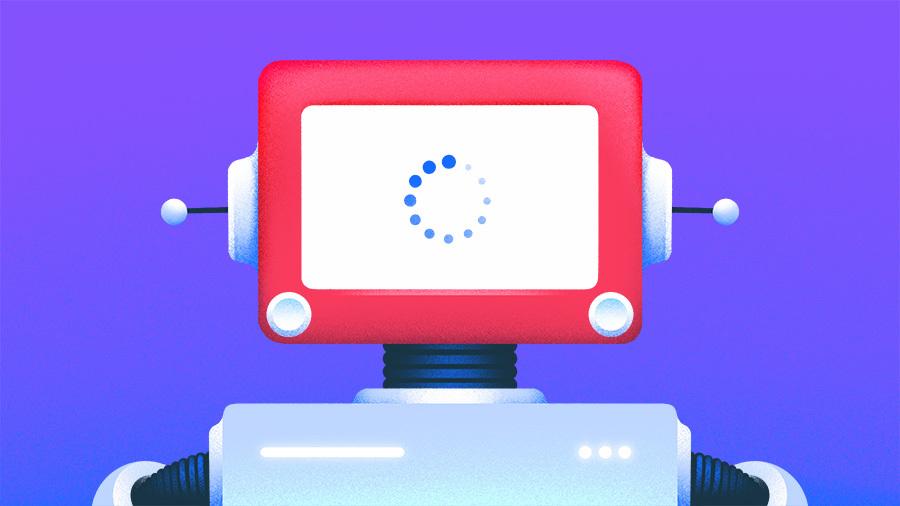Editor’s note: This article is part of an ongoing series in which Crunchbase News interviews active investors in artificial intelligence. Read previous interviews with GV (formerly Google Ventures), Felicis, Battery Ventures, Bain Capital Ventures, Menlo Ventures, Scale Venture Partners, Costanoa, Citi Ventures, Sierra Ventures and Andrew Ng of AI Fund, as well as highlights from more interviews done in 2023.
Foundation Capital is betting big on markets that don’t yet exist. In March, the 30-year-old venture firm closed a new $600 million fund to back technical founders at the earliest stages — often before there’s even a product — with a strategy built around what it calls “zero billion-dollar markets.”

Crunchbase News recently spoke with general partner Steve Vassallo, who says his firm’s conviction stems from its history of spotting inflection points early — from incubating AI chipmaker Cerebras in 2016 to backing more than 100 AI startups over time.
Palo Alto, California-based Foundation looks for technical founders pushing into uncharted spaces where infrastructure and human needs intersect, often long before consensus forms. The idea: invest early, double down on breakout companies, and help them scale through the risky first million dollars in revenue.
Vassallo is an engineer by training with a strong design background. He said he believes the companies that differentiate themselves in the new AI age will be ones where humans matter.
“You really have to see the intersection of technology and humanity to navigate this moment,” he said. “It’s an appreciation for not just physics, but psychology. And where is it that humans will continue to matter?”
That’s especially true with AI reinforcement learning with human feedback, which keeps humans in the loop. “AI is getting smarter because humans are seeing where the gaps are,” Vassallo said. “And then we’re getting smarter in terms of how we interact with these tools.”
Vassallo joined Foundation 18 years ago. Before that, he applied his education in electromechanical engineering and robotics to product design, including an early-career stint in the 1990s at Ideo, building hardware and software systems that informed his interest in design and fast prototyping.
These days, his team at Foundation spends a lot of time thinking about “tools that engage the best of us, and are mindful of all the ways we can be hacked,” he said.
Investing early with high conviction
The rate at which AI is now advancing feels different from past technology cycles, Vassallo said. “We’re at a moment right now that feels like nothing else that I’ve experienced in north of 30 years.”
Foundations’ investment approach is not consensus driven. Rather, it looks for “zero billion-dollar markets” — markets that do not yet exist, until a founder steps into the breach and creates the product.
“The thing that animates so many of the investments that we do here at Foundation — you’re projecting your view of where the markets could go if this thing were to exist,” Vassallo said.
The firm’s partners lean on their “nerdy side” and keep track of GitHub contributions, as well as the people who are building compelling open-source projects inside large companies that could get spun out.
The firm tends to invest very early, with high conviction, and in very technical founders, Vassallo said. It then aims to help them from their earliest days scale to their first million dollars in revenue, he said.
Across its portfolio, 80% of its investments are in pre-revenue companies — often pre-product and sometimes pre-inception.
New computing infrastructure
Foundation incubated AI chip startup Cerebras and co-led its Series A in 2016 with Benchmark and Eclipse Ventures. For context, Nvidia was worth less than $25 billion at the time of Foundation’s Cerebras investment. Today, the semiconductor giant is worth $4 trillion, and Cerebras itself has signaled plans to go public.
Vassallo met Cerebras co-founder Andrew Feldman in 2009 when the latter was working on data-center power efficiency. Vassallo did not invest then, but the two stayed in touch.
“Investing in semiconductors in the mid-2010s was a recipe for losing a lot of money,” Vassallo said.
But when Feldman’s prior company, SeaMicro, was purchased by AMD in 2012, and after Feldman left, the two mulled for a few years about what might be next.
“What you could see is you would need to build a different approach around optimizing intelligence per unit of energy,” said Vassallo. How do you build something that is “not only faster, and more performant, but also going to be much more energy efficient?”
Founded in 2016, Cerebras set out to build a new computing infrastructure, challenging some of the assumptions of six decades of semiconductor physics, he said. Cerebras built a fundamentally different architecture with wafer scale semiconductors, optimized for data movement, rather than compute.
“AI workloads between 2012 and 2016 had already grown by north of 300,000x,” said Vassallo, which gave him conviction to invest.
“We have been able to assemble an extraordinary team around a very different architecture. What we’re building is not something that others are focused on,” he said.
100+ AI investments
Foundation has made more than 100 investments in AI in infrastructure, data infrastructure, developer tools, security and applications. The firm has not, however, invested in frontier model labs.
Vassallo first invested in AI around 2008 and 2009 in statistical inference over large data sets used by companies in advertising such as Aggregate Knowledge. This technology was also leveraged for spam filtering and cybersecurity and in e-commerce.
Joanne Chen, a general partner at Foundation, led the seed round in 2021 for Jasper, an app that assists with writing built on top of OpenAI’s GPT-3. Jasper had to pivot to a marketing enterprise solution when GPT-3.5 launched in November 2022 with its own consumer chatbot, which reached 100 million monthly active users in just two months.
The firm also led the seed round in 2023 for Tennr, a company automating authorization healthcare workflows from often convoluted and paper-based processes.
In the coding sector, Ashu Garg, a general partner, led the firm’s Series A funding in July 2025 in PlayerZero. The company’s CodeSim product predicts software behavior and failures and debugs AI-written code before it is deployed, a potentially massive market when you consider recent estimates that roughly 25% of large tech companies‘ code is written by artificial intelligence.
“Code is such a good application of large language models, because there is actually a way to close the loop and determine whether you have something that works better or not,” Vassallo said.
The firm typically invests between $15 million and $20 million per company, a sum designed to carry a startup through its Series A and B rounds. It has a separate leadership fund for companies that break out.
Along with investing up and down the AI stack, Foundation also invests in crypto and the “tech” part of fintech. The firm is led by four general partners: Vassallo, Chen, Garg and Rodolfo Gonzalez.
Vassallo focuses on infrastructure and “AI intersected with something else,” as well as its crypto practice. He anticipates that infrastructure will precede applications in AI, like other investment cycles.
Overall, he predicts explosive application growth in AI, but notes it will require more nuanced investment analysis.
“We love working with founders who are living right at that edge,” he said.
Related Crunchbase query:
Related reading:
Illustration: Dom Guzman

Stay up to date with recent funding rounds, acquisitions, and more with the
Crunchbase Daily.

